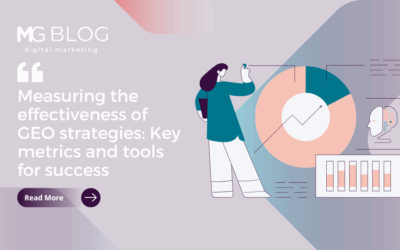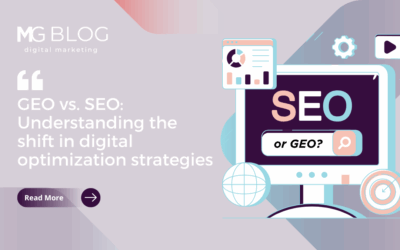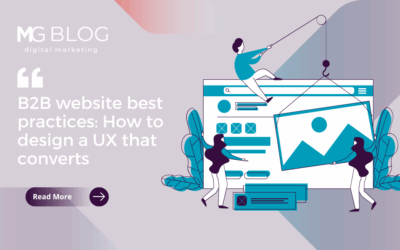Merritt Group Launches AI Technology Practice to help vendors navigate a maturing market.
Artificial Intelligence (AI) has stunned the world with its potential to reshape how work gets done. Offices are abuzz as workers experiment with these new tools across a variety of business lines and tasks like composing emails, managing IT helpdesk requests, and resolving customer service inquiries. And technology decision-makers have taken notice.
As today’s release of the 2024 State of Generative AI Use and Impact study demonstrates, GenAI is no longer seen as just a novelty purchase or interesting experiment, but rather an increasingly important productivity tool worthy of a more thoughtful investment approach. This is clearly good news for AI providers. But to avoid growing pains, they must work to meet and sustain the excitement of this moment while also engaging buyers across the key stages of an increasingly professionalized, rigorous, and extended sales cycle.
At Merritt Group, we believe this can best be achieved by grounding marketing, PR, and sales enablement strategies in the same deep market understanding applied to the other technology sectors we serve. As such, we are excited to officially introduce our AI Technology Practice Group. Led by a team of early innovators in enterprise AI marketing and PR strategy, and supported by MG Labs, the AI Technology Practice is ideally positioned to help innovators reach, engage, and convert buyers in a quickly evolving market.
2024 State of Generative AI Use and Impact Report
To commemorate the start of the AI Technology Practice, we undertook an effort to better understand adoption trends for the next year. Working with We are Talker, a multi-service content agency, we surveyed 200 senior-level technology purchasing decision-makers across executive leadership, marketing, IT/operations, security, and finance/accounting at well-funded, late-stage startups as well as global corporations in the United States, who are using or looking to purchase GenAI products and services. Some highlights of our findings include:
1. AI adoption is set to increase in a real, measurable way in 2024. Nine in ten (90.5%) of respondents expect their organizations to use AI tools much more or somewhat more frequently in 2024 than in 2023. And, 90% of respondents have either recommended, or had decision-makers within their organization advocate for, integrating tools into various work tasks. The market opportunity is clear; AI is more than just a passing trend.
2. AI tools are seen as significant drivers of productivity across diverse use cases and business lines, with the customer service and IT departments currently leading the charge. Exploring the use cases and impact of AI unveils a transformative shift in how organizations approach their daily workflows and helps explain why organizations plan to increase their use of the technology. Nearly nine in ten (89%) respondents reported increased productivity while using AI tools during the workday, with over one quarter (27%) anticipating increased business productivity by 61-81%. Further, 35% of respondents plan to incorporate AI into a staggering 81-100% of their work over the next five years. Customer Service and Support and IT were the two departments most identified as the primary beneficiaries.
3. Organizations generally report satisfaction with their AI investment, but the survey reveals potential areas of risk. In another positive development for AI companies, just over seven in ten respondents (72%) indicated their investments delivered value for their business. But it was notable that among those who have experienced setbacks, the reasons cited included expectations not being met (41%) and issues related to poor data quality (31%). These insights highlight an opportunity to get ahead of potential risks by using industry education to support the full implementation cycle–-from setting realistic expectations in the requirements phase to encouraging end-user adoption at roll-out.
4. IT departments are at the helm of a relatively lengthy sales cycle. With the level of interest and productivity benefits clear, we wanted to get some insight into how companies make their AI purchasing decisions. We learned IT departments wield significant influence, with 68.5% of respondents identifying them as the primary decision-makers and purchasers of AI tools and services and only a quarter of respondents (24.5%) indicating the same responsibility on individual lines of business. This was a somewhat surprising result challenging the traditional direct-to-line-of-business approach currently in favor among technology marketing and sales strategists and deserves more consideration. In addition, we learned the buying cycle tends to be relatively protracted, with 43% of respondents reporting a typical duration of one to two years. This elongated timeline reflects the meticulous evaluation process that organizations undertake when considering AI investments.
5. Decision-makers are actively seeking more information, in some cases spending hours each week reading about and experimenting with AI tools. Technology decision-makers are dedicating considerable time to reading, researching, and experimenting with new work-related AI tools. Specifically, 44% of respondents spend one to four hours per week engaging in these activities, further illustrating both the opportunity and the need to support current and potential customers in their effort to be informed participants in the growth of GenAI technology.
Over the next few weeks, we’ll take a closer look at these and other notable findings from the research and what they mean for the AI market and your marketing, public relations, and sales enablement efforts more specifically. In the meantime, we invite you to read the full copy of the 2024 State of Generative AI Use and Impact Report and reach out directly to our AI Technology Practice team to learn more about how we can help you reach your business goals.
Want to learn even more about the use of AI tools for marketing and PR? Be sure to check out our MG Labs page, where we securely test AI tools and platforms to uncover what works (and what doesn’t) as well as our Lay of the Brand episode, where we take an in-depth dive into the report’s results.




